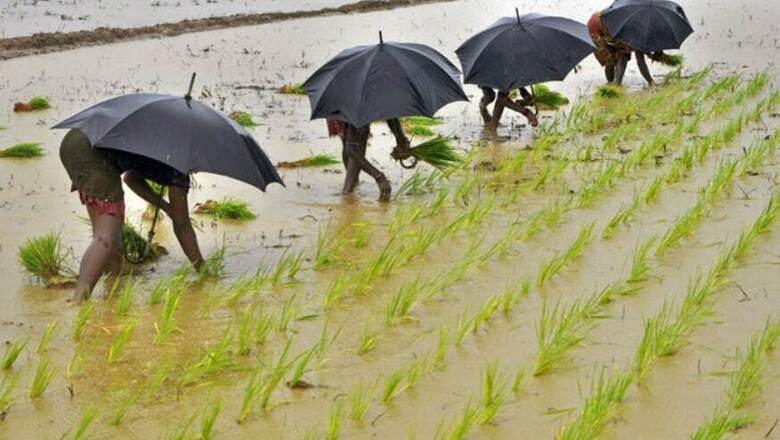
views
Narmada: As Gujarat celebrated the 60th anniversary of its separation from Maharashtra on Friday, the villagers in Narmada district went back in the pre-independence era. This wasn't perhaps their choice but an outcome of coronavirus pandemic.
Years ago, when there was no development in the area, the tribals of the district followed a method of trade called the 'sata pata' system — a local name for the medieval practice of barter. However, this system had gained popularity again.
The border areas of Narmada district are considered as a tribal region of the state with residents having limited resources to by essentials. A lockdown in their situation has left them with neither job nor money as the locals cannot even go out in hunt for work. Hence, they have now decided to exchange goods for their survival.
The residents exchange grains for lentils and so on. "When the country was not independent, these tribals used to grow sorghum on their land and other crops. That's how they exchanged goods and grains through 'sata pata' system and followed this method of trade. Today, when the tribals are unable to get out due to the covid-19 epidemic, the practice has resumed in the villages of the district," said Mahesh Vasava, president of the tribal association AMU.
In 200-300 villages, these tribes do farming, and when it rains, they go out in different cities to take up other jobs during the season. As it is difficult for them to meet their means with the food grains provided by the government, these tribals are exchanging goods for other agricultural products and grains.
Vasava said that wheat, rice and chickpeas do not support the livelihood of these tribals. They have also demanded that they be given other necessities of life, he added.
In this case, Jagu Deseria, a resident of Amiyali village of Narmada, said that the most of the tribal people are not aware of the money given to them by the government. "Our farms are dry and our livelihood is gone, We can't go to work. Hence, we are forced to resume 'sata' for livelihood," he said.




















Comments
0 comment